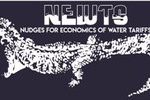
Fostering research excellence
in EU Outermost Regions


Fostering research excellence
in EU Outermost Regions
Published 18.12.2019

The project main objective is to provide a socio-economic assessment of green nudging policies, focusing on water consumption controlling.
Abstract:
In the context of increasing tensions around water, water pricing for domestic uses is a key policy to manage and conserve water resource. In practice, the issue is quite challenging for water regulators and service providers, notably because tariffs have to meet several objectives amongst others, affordability, at least on basic needs, full cost recovery including environmental costs and providing incentives to use water efficiently. At the same time, since behavioural change is a key factor in ecological transition, public authorities are considering alternative means of action, most notably nudges. These soft incentives aim to change individual choices by exploiting cognitive bias (behavioural nudges) or by providing information (informational nudges). Experiments demonstrate the effectiveness of nudges resulting in consumption reductions ranging from small to large size effects, depending on the messages sent to households. The fact is that nudges do impact water consumptions and, thus, change the water demand functions of the households (necessarily). The question of “how” matters for tariff performance and its proper design. Far from being substitutable to tariff instruments, it is clear that green nudges, through messages on consumption control and/or tariff understanding (that may be perceived as complex), can improve affordability and pricing incentive effect. The project aims to measure these complementarities and empower stakeholders to fully analyse the effects of policy mix, combining nudges and tariff instruments, on socio-economic performance of Demand Side Management (DSM) programs.